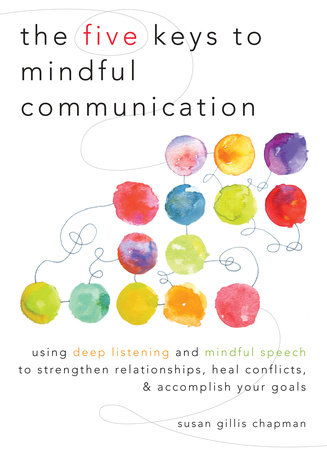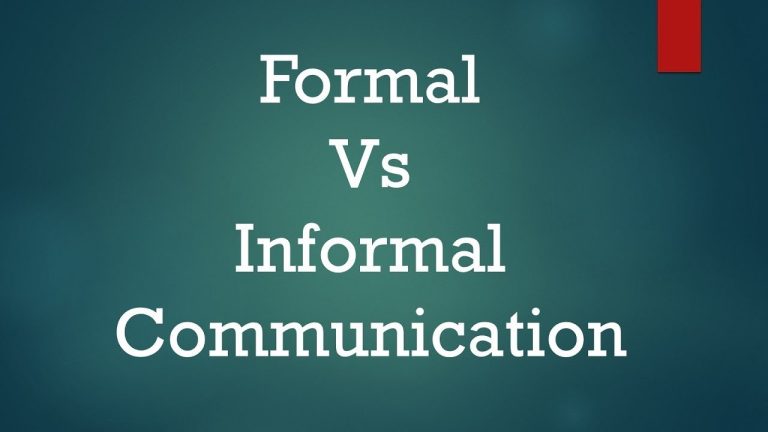Mindful Communication For A Happy Marriage: Secrets Unveiled
Mindful communication strengthens marital bonds. It fosters understanding and deepens connections.
In today’s fast-paced world, keeping a marriage happy requires effort. Communication plays a key role in this journey. Mindful communication isn’t just about talking; it involves listening and understanding. It means being present in conversations with your partner. By practicing mindfulness, couples can navigate challenges better.
They learn to express feelings without conflict. This helps in building trust and love. When couples communicate mindfully, they feel heard and valued. This leads to a more harmonious relationship. A happy marriage thrives on open, honest dialogue. Mindful communication can transform how partners relate. Discover how this approach can enhance your marriage. Dive into the benefits and practices of mindful communication for a happier union.

Credit: www.penguinrandomhouse.com
Building Emotional Connection
Mindful communication nurtures happy marriages by fostering emotional connections. Listening actively and expressing feelings openly builds trust. Sharing thoughts without judgment deepens understanding and strengthens bonds.
Building a strong emotional connection in marriage is the cornerstone of a happy and fulfilling relationship. It’s about understanding each other’s feelings and showing genuine care and concern. This connection goes beyond mere words; it involves actions and attitudes that strengthen the bond between partners. So, how can you ensure that your marriage is anchored by a deep emotional connection? Let’s dive into some practical techniques.Active Listening Techniques
Active listening is more than just hearing words. It’s about being fully present in the moment with your partner. When your spouse shares something, put down your phone and make eye contact. Nod and use short verbal affirmations to show you’re engaged. Ask open-ended questions to encourage them to share more. This not only shows that you care but also helps you understand their perspective better. Can you remember a time when you felt truly heard?Expressing Empathy
Empathy is about understanding and sharing your partner’s feelings. It’s essential for building emotional connection. When your partner is upset, acknowledge their emotions without judgment. You might say, “I see that you’re feeling frustrated. That must be tough.” Share your own experiences to show that you can relate. This creates a safe space for both of you. How often do you take the time to step into your partner’s shoes? By integrating these practices into your daily interactions, you can nurture and grow the emotional connection in your marriage. Regularly reflecting on these can lead to a happier, more fulfilling partnership. What will you do today to strengthen the emotional connection with your spouse?
Credit: www.marriage.com
Navigating Conflicts
Conflicts are an inevitable part of marriage. They can either strengthen or weaken the bond. Mindful communication helps couples navigate these challenges. It focuses on understanding and empathy. Couples who practice mindful communication often resolve conflicts more effectively.
Healthy Argument Strategies
Arguments are not always bad. They can help clarify misunderstandings. One key strategy is to listen actively. This means giving full attention to your partner. Avoid interrupting when they speak. Show that you understand their feelings. Use “I” statements instead of blaming. For example, say “I feel hurt” instead of “You hurt me.” This reduces defensiveness and promotes open dialogue. Taking a break if emotions run high can also be beneficial.
Conflict Resolution Tools
Having the right tools can ease conflict resolution. One helpful tool is setting a time to discuss issues. This ensures both partners are ready to talk. Another tool is creating a safe space for discussion. This means a place where both feel comfortable expressing themselves. Agree on boundaries and rules for discussions. For example, no shouting or name-calling. Practicing forgiveness and letting go of grudges is crucial. It helps in moving forward positively. Using these tools can lead to a happier marriage.
Enhancing Intimacy
Enhancing intimacy in a marriage means strengthening the bond between partners. Mindful communication plays a key role in this process. It involves listening, understanding, and expressing feelings genuinely. Open dialogue fosters deeper connections, making relationships more fulfilling. Let’s explore how mindful communication can enhance intimacy.
Non-verbal Communication
Words aren’t the only way we communicate. Non-verbal cues speak volumes too. A gentle touch or a warm smile can express love. Eye contact shows that you are truly listening. Facial expressions reveal emotions without saying a word. Being aware of these cues strengthens your connection. Understanding non-verbal signals helps partners feel valued and loved.
Creating Safe Spaces
Safe spaces are essential for open communication. They allow partners to express thoughts without fear. Listening without judgment builds trust and understanding. Encourage each other to share feelings and concerns. A safe environment invites honest conversations, deepening intimacy. It shows respect and fosters emotional security.
Balancing Individual Needs
Balancing individual needs in a marriage promotes harmony and happiness. Each partner has unique desires and aspirations. Addressing these needs fosters mutual respect and understanding. This balance ensures both partners feel valued and fulfilled. Mindful communication plays a crucial role in achieving this equilibrium.
Respecting Boundaries
Respecting boundaries is essential for a happy marriage. It means acknowledging each other’s personal space. Partners should listen to each other’s limits. This respect builds trust and avoids misunderstandings. Boundaries help maintain individuality within the relationship.
Cultivating Personal Growth
Personal growth is vital for individual happiness. Each partner should pursue their interests and goals. Encourage each other to learn and evolve. Growth leads to self-improvement, benefiting the marriage. Support each other’s ambitions for a fulfilling partnership.
Sustaining Joy Together
In a happy marriage, joy is a shared treasure. Sustaining this joy requires mindful communication. Couples who talk openly and listen deeply build strong connections. This bond helps them face life’s ups and downs together. Open and honest discussions lead to mutual understanding. This understanding nurtures joy and love, ensuring a lasting marriage.
Shared Goals And Dreams
Shared goals unite couples with a common purpose. Dreaming together strengthens the bond. Couples can discuss what they want for their future. This may include travel plans or starting a family. Open conversations about these dreams create excitement. It also fosters a sense of teamwork. Working towards shared goals builds trust and deepens love.
Celebrating Milestones
Celebrating milestones brings joy and creates lasting memories. Anniversaries, birthdays, and promotions deserve recognition. These moments are opportunities to express love and gratitude. Small gestures like a handwritten note or a surprise dinner mean a lot. Celebrating together strengthens the relationship. It reminds couples of their journey and achievements. Acknowledging each other’s efforts keeps the bond strong.

Credit: www.audible.com
Frequently Asked Questions
What Are The Three C’s Of A Good Marriage?
The three C’s of a good marriage are communication, compromise, and commitment. Couples should communicate openly, compromise on differences, and commit to the relationship. These elements help build a strong and lasting partnership. Prioritizing these three C’s can enhance marital satisfaction and harmony.
What Are The Four Types Of Communication To Strengthen Your Marriage?
The four types of communication to strengthen your marriage are verbal communication, non-verbal communication, emotional communication, and active listening. Verbal communication involves sharing thoughts and feelings openly. Non-verbal communication includes gestures and facial expressions. Emotional communication focuses on understanding each other’s emotions.
Active listening ensures attentively listening and responding to your partner.
Why Do Married Couples Stop Communicating?
Married couples may stop communicating due to busy schedules, unresolved conflicts, or lack of emotional connection. Stress and routine can also contribute, causing partners to drift apart. Addressing these issues early can help restore communication and strengthen the relationship.
Conclusion
Building a happy marriage takes mindful communication. Listen with care. Speak with honesty. Show empathy every day. These actions create strong connections. Misunderstandings fade when partners talk openly. Trust grows with shared feelings. Respect strengthens the bond. Keep the focus on understanding each other.
Every conversation matters. Little efforts bring big results. Relationships thrive with patience and kindness. Remember, effective communication is the heart of a happy marriage. Make it a priority. Nurture this skill together. Your marriage will blossom beautifully.





